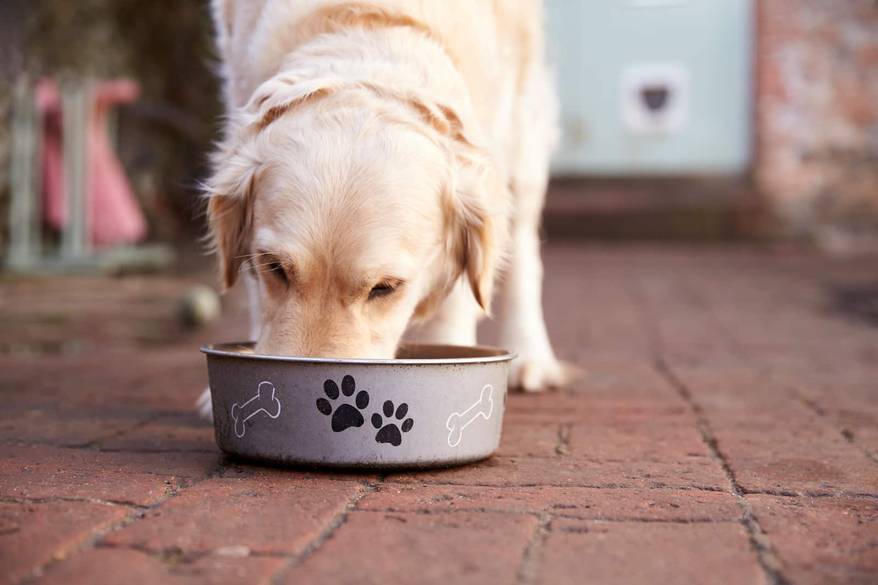
-
Find the right food for your pet
Take this quiz to see which food may be the best for your furry friend.
Find the right food for your pet
Take this quiz to see which food may be the best for your furry friend.
Featured products
 Small & Mini Savory Stew with Chicken & Vegetables Dog Food
Small & Mini Savory Stew with Chicken & Vegetables Dog FoodA delicious complement to the nutrition of Science Diet Small & Mini 7+ dog food
Shop Now Adult 7+ Perfect Digestion Chicken, Whole Oats & Brown Rice Recipe Dog Food
Adult 7+ Perfect Digestion Chicken, Whole Oats & Brown Rice Recipe Dog FoodScience Diet's breakthrough nutrition supports ultimate digestive well-being & healthy microbiome for dogs age 7+
Shop Now Adult Healthy Cuisine Roasted Chicken, Carrots & Spinach Stew Dog Food
Adult Healthy Cuisine Roasted Chicken, Carrots & Spinach Stew Dog FoodDelicious roasted chicken paired with tender vegetables in a succulent stew
Shop NowFeatured products
 Adult Savory Entrée Can Variety Pack Cat Food
Adult Savory Entrée Can Variety Pack Cat FoodPrecisely balanced nutrition with the delicious taste of savory minced chicken to help fuel the energy needs of cats during the prime of their life
Shop Now Adult 7+ Tender Tuna Dinner Cat Food
Adult 7+ Tender Tuna Dinner Cat FoodWith delicious chunks in a decadent gravy
Shop Now Adult 7+ Senior Vitality Chicken & Vegetable Stew Cat Food
Adult 7+ Senior Vitality Chicken & Vegetable Stew Cat FoodImproves Everyday Ability to Get Up & Go
Shop Now -
Dog
- Dog Tips & Articles
-
Health Category
- Weight
- Food & Environmental Sensitivities
- Urinary
- Digestive
- Joint
- Kidney
-
Life Stage
- Puppy Nutrition
- Adult Nutrition
- Senior Nutrition
Cat
- Cat Tips & Articles
-
Health Category
- Weight
- Skin & Food Sensitivities
- Urinary
- Digestive
- Kidney
-
Life Stage
- Kitten Nutrition
- Adult Nutrition
Featured articles
 Does My Pet Hate Me?
Does My Pet Hate Me?Learn tips for bonding with your pet if you've ever thought, 'My dog doesn't like me, or 'Why do I have a standoffish cat?'
Read More Why Are Dogs and Cats So Cute?
Why Are Dogs and Cats So Cute?If waggy puppy dog tails and furry kitten yawns make you swoon, you're not alone. Why are cats so cute? And, dogs too! Let's find out!
Read More Do Dogs and Cats have Belly Buttons?
Do Dogs and Cats have Belly Buttons?Learn whether cats & dogs have belly buttons like humans, what the function is, and if there are any health concerns associated with it.
Read More -


Are you puzzled about why you're seeing brown rice in the list of ingredients in your dog food? Can dogs eat brown rice? In short, the answer is yes, as brown rice offers important nutrients for your dog's overall health. Here are explanations to some of the most common questions about why brown rice is an essential ingredient in many dog foods.
What health benefits does brown rice offer dogs?
Brown rice is full of natural fiber, which helps a dog's digestion. It is also an excellent source of carbohydrates, vitamins and minerals. Specifically, vitamins B2 - better known as riboflavin, B9 - better known as folate, and D are found in brown rice and provide a variety of health benefits. Minerals and vitamins essential to a dog's health, including calcium, iron and riboflavin are also packed into this superfood. It is important to have the right balance of these nutrients in your dog's food, so if you see brown rice listed as an ingredient in a Hill's® dog food you can be confident that Hill's has done extensive research to make sure that it not only meets our high-quality standards, but is also precisely balanced to meet your dog's needs.
Brown rice vs. Brewers rice: What’s the difference
Brown rice is made by removing the hulls from the rice kernel but leaving some of the bran intact, giving it a brownish color. By contrast, brewers rice (named because it is often used in the brewing industry) is broken pieces of white rice. Nutritionally speaking, brewers rice is a great source of energy and provides protein and minerals.

What about white rice?
The biggest nutritional difference between brown and white rice is that the bran on brown rice increases the fiber content. Unless your pet's food uses rice as a primary fiber source, either option will work fine for your dog.
Can my dog be allergic to rice?
Yes, but it's rare. If your dog is allergic to rice or other grains, they might have symptoms, such as itchy skin, hair loss and ear infections. But those same symptoms could be caused by other allergies or health issues. It's best to ask your vet to help you determine if your dog suffers from a rice allergy — or any other type of allergy — before cutting it from his meals.


Tasty Tips
Why would I want to keep my dog from eating grains?
The popularity of a grain-free food has far outpaced the number of dogs with diagnosed grain allergies or sensitivities. This fad, instead, became popular about the same time as low-carb diets in human kitchens. Vets report frequently hearing from pet parents that they chose to go grain free because they believe grains are simply fillers in dog food to keep prices low. That is simply not true. Whole grains like brown rice provide dogs with important and digestible nutrients. In addition, grain-free dog foods are not low in carbs — which are essential to a dog's overall health. All that being said, some dogs should go grain-free, so make sure to check with your vet if there is one that is best for your dog.
So, can dogs eat brown rice as part of a healthy meal plan? The answer is yes, and that it actually provides beneficial nutrients for your dog — it's not a cheaper filler option. The most important thing to remember in choosing a dog food is that it should provide your dog with complete and balanced nutrition. Hill's relies on a team of more than 200 veterinarians, nutritionists, and food scientists to develop new products and improve existing ones, to ensure that your pet lives a long, healthy, and full life. Always be sure to consult your veterinarian on ingredients for your dog's food, and do not rely on fads to sway your opinion of choosing the right nutrition for your dog. We care about his health as much as you do, and make every effort to ensure when they eat a Hill's dog food that they are getting a high-quality meal with thoughtfully sourced ingredients.


One of our staff authors prepared this article for you
Related products

Delicious braised beef paired with tender vegetables in a succulent stew

Delicious roasted chicken paired with tender vegetables in a succulent stew

A delicious complement to the nutrition of Science Diet Small & Mini 7+ dog food

Science Diet's breakthrough nutrition supports ultimate digestive well-being & healthy microbiome for dogs age 7+
Related articles

Large and giant breed puppies have different nutritional needs than other dogs. Learn how to provide the special care they need to grow up big and strong.

Your dog's coat and skin are a big part of your dog's overall health. Ensure you keep your dog's coat healthy, by following these simple tips.

Learn about choosing the right food for your mature or older dog, ensuring he receives the correct balance of nutrition.

Hill's Science Diet Small & Toy Breed dog foods are designed to meet the nutritional needs for your small dog at every life stage. Learn more here.

Put your dog on a diet without them knowing
Our low calorie formula helps you control your dog's weight. It's packed with high-quality protein for building lean muscles, and made with purposeful ingredients for a flavorful, nutritious meal. Clinically proven antioxidants, Vitamin C+E, help promote a healthy immune system.
Put your dog on a diet without them knowing
Our low calorie formula helps you control your dog's weight. It's packed with high-quality protein for building lean muscles, and made with purposeful ingredients for a flavorful, nutritious meal. Clinically proven antioxidants, Vitamin C+E, help promote a healthy immune system.

